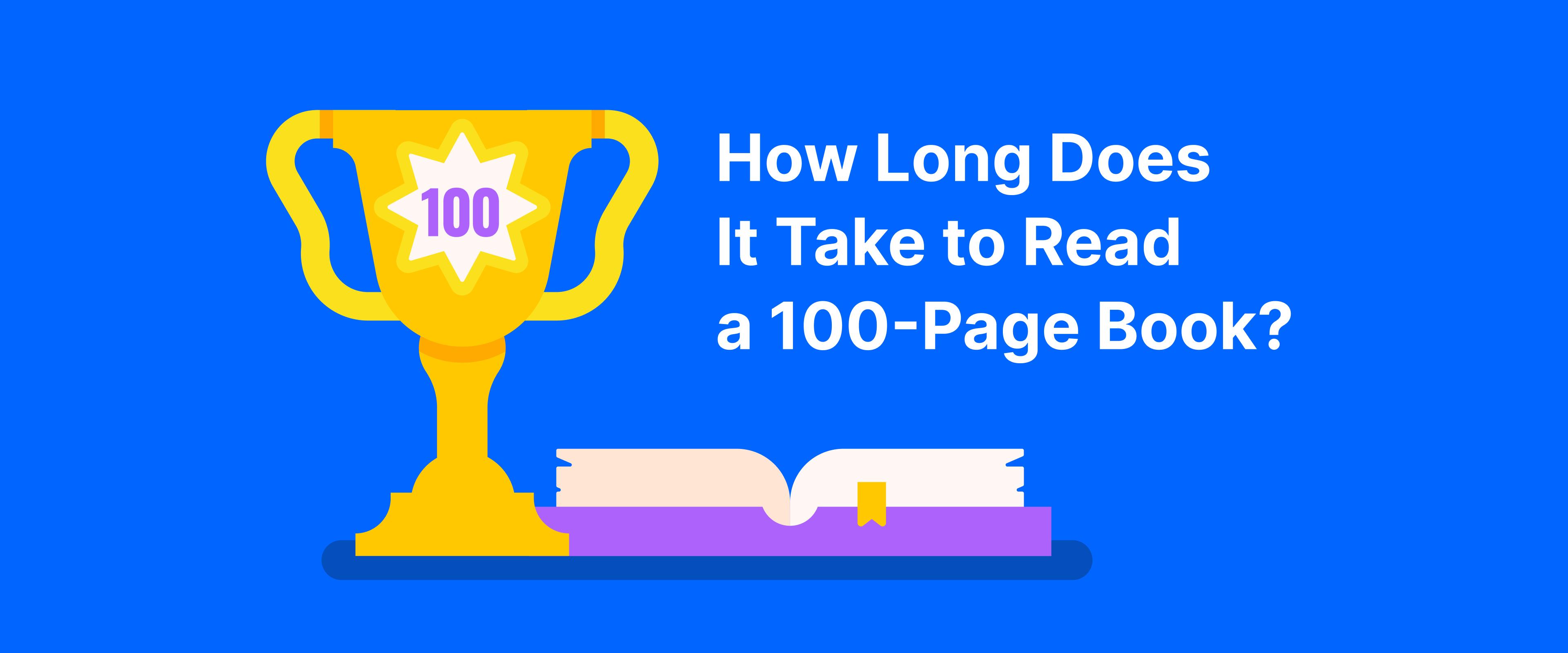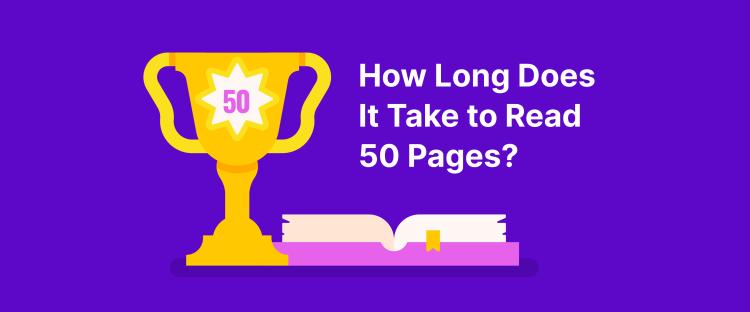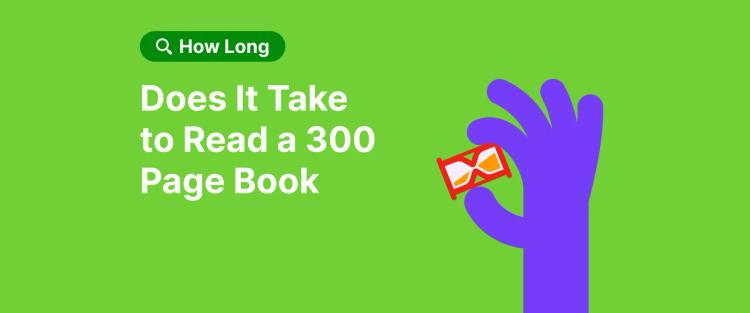How long does it take to read 100 pages from cover to cover? Depending on your reading speed (words per minute), font size, word count, and type of book, the average reader finishes 100 pages in about 2.8–3.2 hours. Want to read more pages in less time? Then, try speed reading hacks to get through your favorite fiction book or a short nonfiction guide faster.
Inspired by top self-education and personal growth books like 'Atomic Habits' by James Clear, 'The 5 AM Club' by Robin Sharma, and 'Limitless' by Jim Kwik, these practical tips will help you improve your memory and concentration while developing a regular reading habit. To make learning easier and more interactive, we created bite-sized summaries of these bestsellers and collected them in Headway's library.
Quick tips for finishing 100 pages faster:
Know your reading speed: Time one page to plan realistically
Schedule deep focus blocks: Read in 25–45 distraction-free minutes
Start early: Use the 5 AM rule for calm, focused morning reading
Skim before going deeper: Preview headings and key points first
Use the Headway app: Get 15-minute summaries of top nonfiction books
Keep scrolling for a more detailed breakdown of speed reading tips and retention hacks!
Top five hacks to cut your reading time
If you're an avid reader, finishing a 100-page book in one sitting is a breeze, even with single-spaced pages. But if your reading speed is lower than average and you want to read more efficiently, set better goals, and improve comprehension, here are some expert-approved strategies to increase your WPM score.
1. Schedule daily reading sessions
Deep focus is a superpower in an increasingly distracted world. To read efficiently, treat your reading time like a high-priority task and protect it with time blocks, free from emails, pings, and multitasking. According to Cal Newport:
"Deep work is valuable because it maximizes the amount of productivity you can obtain from a certain period."
Read or listen to the full summary of 'Deep Work' by Cal Newport on the Headway app.
So, mark a 45-minute slot in your calendar as a "Daily Reading Sprint." Do it first thing after your morning routine when your brain is alert. For example, if you're working remotely, block 8:30–9:15 AM, shut down social media, and read with total focus. You'll likely get through 30–40 pages in that time with better retention.

2. Leverage the 5 AM rule
In 'The 5 AM Club,' Robin Sharma calls early morning hours the "Victory Hour" for a reason. It's distraction-free, mentally fresh, and emotionally calm. In other words, these hours are perfect for feeding your mind. Sharma continues by stating:
"Set clear periods for your Victory Hour… blocks for your portfolio of passions and segments for your errands. Doing this weekly will build extraordinary focus into your days, yield marvelous momentum, enhance your productivity significantly and improve your life's balance noticeably."
Try to wake up at 5:30 AM. Brew your favorite tea or coffee. Build a ritual around these steps, like 10 minutes of journaling, 20 minutes of reading, and 10 minutes of reflection. By the time your day begins, you'll already feel more grounded, informed, and ahead of the game.
3. Develop a microlearning habit
As James Clear explains in his bestseller 'Atomic Habits,' small actions done consistently compound over time. That means you don't need to binge-read. Just commit to reading a small number of pages each day to build lasting knowledge:
"By becoming a lifelong learner, you leverage on the compounding ability of knowledge."
To put it into practice, set a new reading habit. Commit to reading or listening to 5–10 pages while drinking coffee, waiting for an appointment, or during lunch. You'll be surprised at how quickly the page count increases as you go. To make this habit stick, pair it with a trigger, like brushing your teeth or finishing breakfast. That's how microlearning becomes automatic.
4. Train your brain for speed
Jim Kwik's 'Limitless' shows that anyone can learn faster by training their brain to process new information and use it for their own good:
"Our most precious gift is our brain. It is what allows us to learn, love, think, create, and even to experience joy. It is the gateway to our emotions, to our capacity for deeply experiencing life, to our ability to have lasting intimacy. It allows us to innovate, grow, and accomplish."
Techniques like spaced retention, active recall, visualization, and meditation can help your brain soak up new knowledge faster. So, before reading a book, know what you're trying to learn from it. That subtle mindset shift will boost your comprehension.
5. Use science-based learning techniques
Barbara Oakley breaks down how to use neuroscience to learn more effectively in 'Learning How to Learn.' Are you wondering how? It's through the help of chunking, retrieval practice, deliberate practice, and regular breaks, all of which can supercharge your reading retention:
"This idea of focusing on the harder stuff is called deliberate practice. Deliberate practice is how you become an expert more quickly in whatever you are studying."
While reading a 100-page book, pause every 20–30 minutes and reflect on the following:
What did I just learn?
How can I explain it in one sentence?
What example connects to my life?
In this way, you group new information into units, or "chunks," for better comprehension. To decompress and give your brain some rest, use the Pomodoro technique (25 minutes reading, 5 minutes rest) to stay mentally fresh.
After your session, review your highlights later that evening to reinforce your memory. Finally, turn what you read into action. Write a tweet, share a quote, or tell a friend. That's retrieval in action.
How long does it take to read 100 pages? Your personal reading chart
Most adult readers average between 200–300 words per minute (WPM). With a regular format of about 250–300 words per page, here's a detailed breakdown of what you can expect when reading a 100-page book:
| Reading Speed (WPM) | Words in 100 Pages | Estimated Reading Time |
|---|---|---|
150 WPM (Slow) | 25,000–30,000 | 2 hrs 45 mins to 3 hrs 20 mins |
200 WPM (Average) | 25,000–30,000 | 2 hrs 5 min–2 hrs 30 mins |
250 WPM (Above Avg) | 25,000–30,000 | 1 hr 40 mins–2 hrs |
300 WPM (Fast) | 25,000–30,000 | 1 hr 20 mins–1 hrs 40 mins |
500 WPM (Speed Reader) | 25,000–30,000 | 50–60 mins |
Understanding your reading speed helps you read smarter and learn the amount of time needed to finish a specific number of pages. Save this chart and enjoy the benefits of fast reading and better retention. Here are three easy ways to use it when reading books.
1. Plan your reading time
Want to finish a 100-page book before bed, during your commute, or in between meetings? First, figure out your average reading speed, such as 250 words per minute, and estimate how long it will take based on the book's length (around 25,000–30,000 words total).
Suppose you have an hour in the evening and want to unwind by finishing a short productivity book. You calculate that at your current pace, you'll need about 90 minutes to finish it. Thus, you break it into two sessions: 45 minutes tonight and 45 minutes tomorrow morning. In just a day or two, you can complete a book that might have otherwise sat unfinished.
2. Set your reading goals
Trying to read one book per week? You don't need hours of free time, just consistency. If your goal is to read a 100-page book by Sunday, and you know you read at 250 WPM, that translates to about 60–70 minutes of total reading time. By tracking your progress with a habit tracker, like the one suggested in James Clear's 'Atomic Habits,' you build confidence with every book you finish.
3. Improve your reading efficiency
Efficiency isn't just about reading faster. It's about retaining and applying what you learn. Let's say you've been struggling to read a 300-page book. You can start by reading its 15-minute summary on the Headway app, one of the best apps for book lovers, and build your reading momentum day by day.
By the end of the week, you'll remember the main ideas from the entire book and can gradually increase your reading speed by tracking how much time you need to finish a bite-sized summary.
Are you a slow or fast reader? Here's how to tell

There's nothing wrong with being a slow reader, especially if you want to process every single word from a new Amazon Kindle novel or reread your favorite Harry Potter book. Speed readers, however, skim the text to get to the point quickly and spend less time on every page. So, are you a slow or fast reader? Here's how to figure it out, plus examples to guide you.
1. Measure your reading speed by timing one page
Pick a book, preferably nonfiction, with standard formatting, and use a timer to see how long it takes you to read one full page without skimming. Most pages have about 250–300 words.
If it takes you 2+ minutes per page, you're reading around 150 WPM, which is slower than average.
If it takes 1–1.5 minutes, you're at 200–250 WPM, the average reading speed for adults.
If you finish in under 1 minute, you're likely reading at 300+ WPM, which is fast.
2. Test your comprehension after reading
Speed means little if it doesn't come with understanding. If you rush through a page but can't recall the main points, your effective reading speed is lower than you think. And vice versa, if you can easily list key points after finishing a new book, you're not just reading fast; you're retaining what matters.
3. Track your reading skills over time
Notice how long it takes you to read common book lengths:
Slow readers may take 3+ hours to read a 100-page book
Average readers finish it in 1.5–2 hours
Fast readers can read it in under 1 hour (with good comprehension)
Whether you're fast or slow now, reading is a skill you can train. Use speed training techniques, text and audio summaries, and habit strategies to sharpen your speed and retention, no matter your current level.
Learn to read faster than the average person with Headway
There's no need to spend hours on one book to be a better reader. With the right mindset, habits, and tools, reading 100 pages may become more about consistency than speed.
The Headway book summaries make it easier than ever to upgrade your reading routine and transform it into a lifelong habit. And with bite-sized takeaways from the world's top nonfiction books like 'Deep Work' by Cal Newport and 'Learning How to Learn' by Barbara Oakley. You can absorb the key ideas on personal development, productivity, and motivation even on your busiest days.
Download the Headway app and train your brain to read smarter with concise, curated content designed for real-world application.
Frequently Asked Questions
Can you read 100 pages in 2 hours?
Yes, if you read at an average pace of 250–300 words per minute (WPM), you can finish a 100-page book in about 1.5 to 2 hours, depending on the book's density and layout. Nonfiction may take slightly longer than fiction. To speed up your sessions, try deep focus techniques from 'Deep Work' or Headway's 15-minute summaries.
Is 100 pages a lot to read in a day?
Not at all! In fact, for most readers, 100 pages is a manageable daily reading goal, especially if spread across a few sessions. Reading just 25 pages four times a day could help you finish a full book in 24 hours. Many Headway users use microlearning bursts (10–15 minutes) to achieve similar daily wins.
How many pages are read in 30 minutes?
Most people read 15–25 pages in 30 minutes, depending on their reading speed and the book's difficulty. That means you could finish a 100-page book in 2 to 3 sessions. Try skimming first, then dive into key points for better focus and retention.
Is 20 pages an hour slow?
Yes! That pace suggests a reading speed of 80–100 WPM, which is slower than average. But if you're reading complex material or trying to absorb every detail, it may be intentional. To gradually improve your speed, practice visual tracking and reduce subvocalization, as taught in 'Speed Reading' by Kam Knight.
Is reading 100 pages in 1 hour fast?
That's very fast. It requires reading at 500 WPM or more, a speed typically seen in trained speed readers. Most people need 90–120 minutes for 100 pages. If you want to build toward this, practice reading in short, focused bursts every day until you hit your personal reading goal faster.
What is the fastest a person can read?
World-class speed readers can reach 1,000–2,000 WPM, though comprehension may drop at the upper range. For most people, a realistic goal is 300–500 WPM with high retention. You can also boost your speed using techniques like chunking, retrieval practice, deliberate practice, spaced retention, active recall, and visualization.













